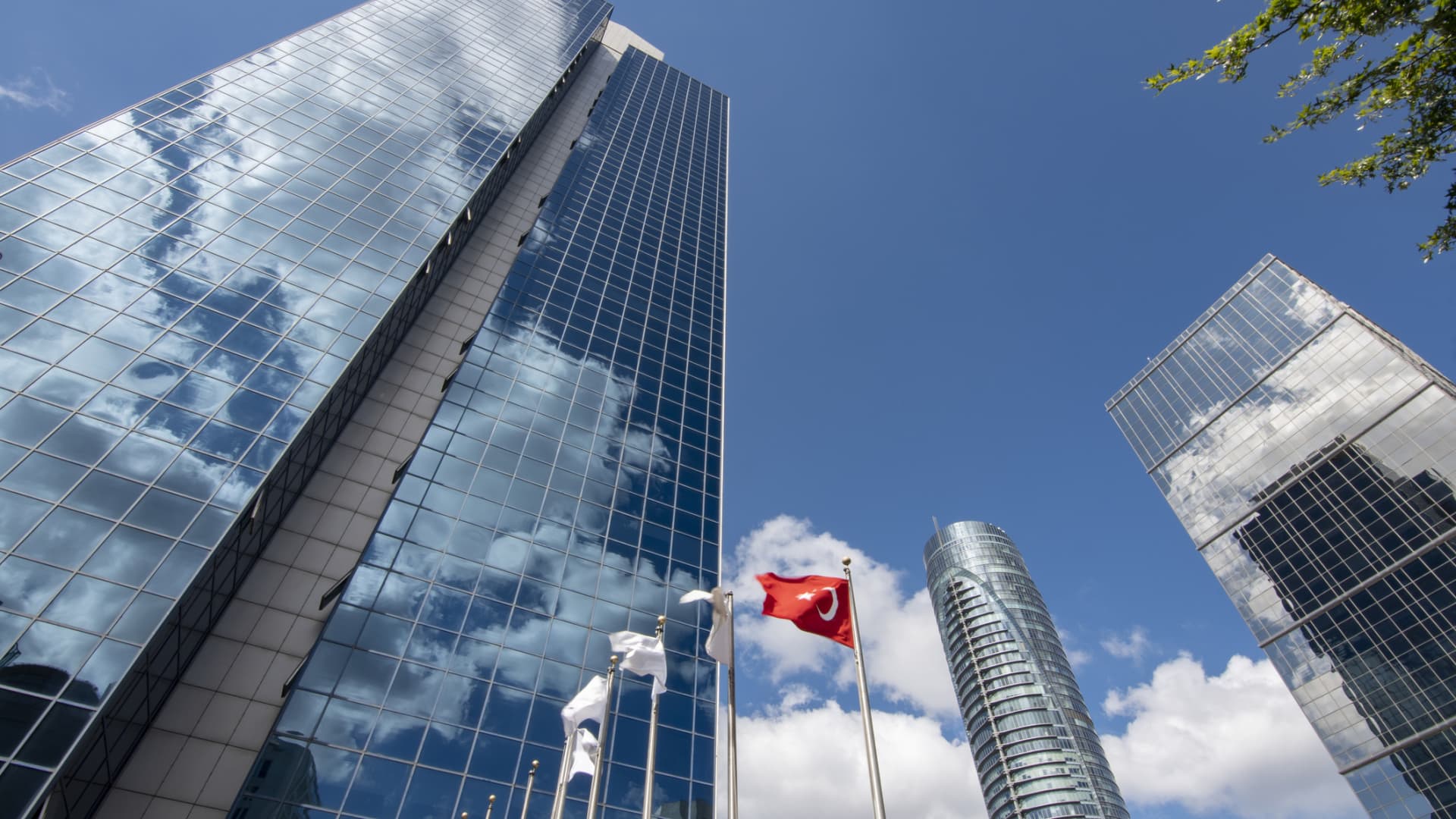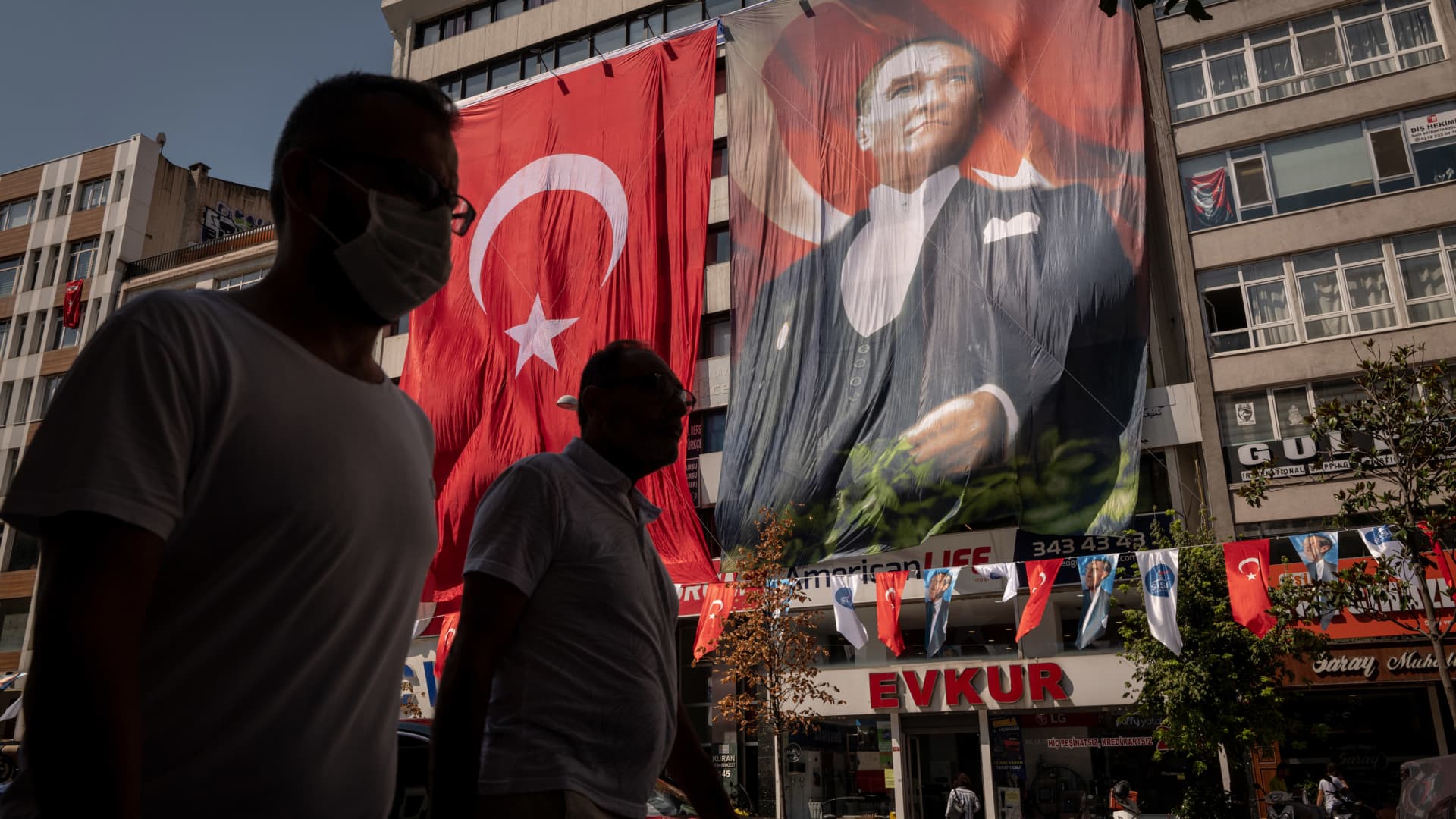The Maslak financial and business center in Istanbul’s Sariyer district.
Ayhan Altun | moment | Getty Images
Annual consumer price inflation in Turkey rose to 67.07% in February, the Turkish statistics office said on Monday, exceeding expectations.
Analysts polled by Reuters had expected annual inflation to rise to 65.7% last month.
According to the statistical institute, the combined sector of hotels, cafes and restaurants recorded the largest annual price increase at 94.78%, followed by the education sector at 91.84%, while the rate in the healthcare sector was 81.25% and in the transport sector 77, 98% was.
Consumer prices for food and non-alcoholic beverages rose 71.12% year-on-year in February, posting a surprise monthly increase of 8.25%.
The monthly rate of change in the country’s inflation from January to February was 4.53%.
The strong numbers are fueling concerns that Turkey’s central bank, which suggested last month that its painful eight-month interest rate hike cycle was over, may need to return to tightening.
“Turkish inflation’s larger-than-expected rise to 67.1% year-on-year in February reinforces our concerns as it follows a sharp rise in inflation in January and strong growth in household spending in the fourth quarter,” says Liam Peach, senior emerging markets economist at London-based Capital Economics, wrote in a research note on Monday.
“Pressure on core prices continues to mount and if this continues, the likelihood of a resumption of the central bank’s tightening cycle will only increase in the coming months,” he said.
Some analysts predicted a possible decline in inflation to around 35% by the end of this year. According to Capital Economics, the latest figures “illustrate that inflationary pressures in the economy remain very strong and suggest that the disinflation process suffered a setback earlier this year.”
Turkish Finance Minister Mehmet Simsek was quoted by Reuters as saying that the country’s inflation would remain high in the first half of the year “due to base effects and the lagged effect of interest rate hikes” but would fall over the next 12 months.
Continued high inflation has been fueled by Turkey’s dramatically weakened currency. the lira, which is at a record low against the dollar. The lira was trading at 31.43 against the greenback around midday local time on Monday. The Turkish currency has lost 40% of its value against the dollar over the past year and 82.6% over the past five years.
“Obviously the inflation data is disappointing this morning,” Timothy Ash, emerging market strategist at BlueBay Asset Management, wrote in a note. The Turkish central bank, he said, “is trying to wind down the protected deposit accounts linked to foreign exchange and rebuild foreign reserves.”
He added that this development “continued to exert downward pressure on the lira,” thereby creating a feed-through effect on inflation.
Analysts note that Turkish policymakers wanted to avoid another rate hike, especially ahead of local elections in the country on March 31. But the inexorably rising inflation could force them to raise interest rates again after the vote. Turkey’s key interest rate is currently at 45%, having risen a total of 3,650 basis points since May 2023.
“Hopefully, favorable base period effects should ensure a more positive cycle from the middle of the year. However, the CBRT may need to further raise interest rates after the local elections,” Ash wrote.
Source link
2024-03-04 09:25:07
www.cnbc.com
















